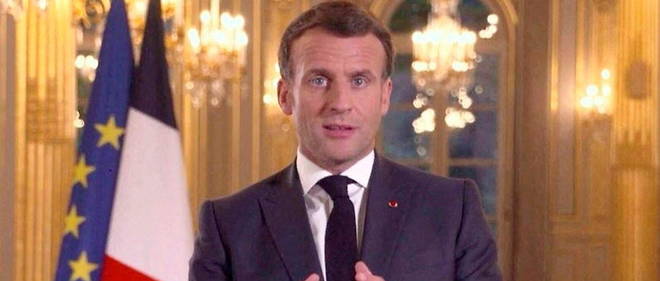The international community must draw "clear red lines" with Russia, French President Emmanuel Macron said, including implementing sanctions after any "unacceptable behavior" by Russian President Vladimir Putin. He said, however, that sanctions alone are not sufficient.
In an interview with "Face The Nation" moderator Margaret Brennan, Macron said he "fully" shares Mr. Biden's desire to open dialogue with Russia. However, he said it was important to be clear with Putin "when we are not aligned."
"This is the only way to be credible. I think that sanctions are not sufficient in itself, in themselves, but sanctions are part of the package. I do prefer constructive dialogue, but to have a constructive and efficient dialogue, you need credibility," Macron said.
Over 30,000 Russian soldiers are amassed on the border of Ukraine, raising concerns that Russia may invade. This is the highest number of Russian troops gathered on the border since 2014. Macron is aligned with President Biden's view that this is an unacceptable level of tension.
"I think we have to define clear red lines with Russia," in order to be credible, Macron said. He acknowledged that the international community has had what he called a "naive approach" with Russia.
"I think what happened a few years ago when Ukraine was invaded, it's not a failure of diplomacy, it's a failure of our collective credibility vis-à-vis Russia," Macron said in reference to the international community's failure to enforce the Obama-Biden administration's "red line" on the use of chemical weapons by Syrian dictator Bashar al Assad in 2013. That inaction, in Macron's view, emboldened Mr. Putin.
"I think what happened a few years ago when Ukraine was invaded, it's not a failure of diplomacy, it's a failure of our collective credibility vis-à-vis Russia," Macron said in reference to the international community's failure to enforce the Obama-Biden administration's "red line" on the use of chemical weapons by Syrian dictator Bashar al Assad in 2013. That inaction, in Macron's view, emboldened Mr. Putin.
Months later, Russia annexed Crimea, a peninsula jutting out into the Black Sea, away from Ukraine in 2014. The annexation was widely condemned by the international community, and the U.S. sanctioned Russia in response.
On Thursday, Mr. Biden announced more sanctions against Russia this week in retaliation for espionage and political interference, citing both the SolarWinds cyber hacking and Moscow's interference in the 2020 US presidential election.
"We cannot allow a foreign power to interfere in our democratic process with impunity," Mr. Biden said in remarks announcing the sanctions on Thursday, although he added that "now is the time to de-escalate."
According to a White House readout of their Tuesday phone call, President Biden also called on Vladimir Putin to "de-escalate tensions" surrounding the Russian military buildup in "occupied Crimea and on Ukraine's borders."
The full interview with Macron will air during "Face The Nation" on Sunday at 10:30 a.m. ET.

